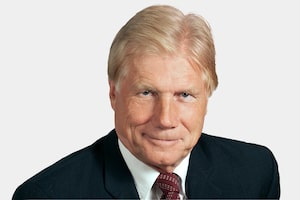The mini-rebellion of Tory MPs – should it be called Bobbleheads No More? – against Stephen Harper's dictate presents the Prime Minister with the type of challenge he hasn't faced in his seven years in power.
Mr. Harper had the odd lonely member of Parliament challenge him over the years. Way back in 2006, there was Garth Turner. He stated a view different from the boss. He was soon excommunicated. Last year, a backbencher spoke out against the abuse of process known as omnibus bills. He was soon silenced.
But now we hear there are as many as 20 MPs wearing the rebel garb. They are supporting colleague Mark Warawa, who was denied the simple right of making a member's statement during the inconsequential runup to Question Period.
The British Columbian is a pro-life MP fighting for that cause. Mr. Harper's desire to keep abortion, a political loser, out of the public eye is certainly understandable. But the question here has become freedom of speech, an issue on which the PM, with his muzzler-in-chief reputation, is vulnerable.
He need only have let Mr. Warawa say his little piece and few would have noticed. Instead, by bringing down the hammer, he has created a firestorm, with virtually every editorialist and talking head backing the dissenters.
So what does the PM do? First, he'll try and ride it out. He'll hope his caucus mavericks cease and desist and that the media shut up as well. But if the dissenters turn up the heat, it will become a big test for the party and the leader. With a further show of courage, the rebels can strike a hearty blow for the democratic process. The emperor might even change his ways.
Party defenders of Mr. Harper say that MPs who question policy can do so in closed caucus sessions. But in a democracy, it isn't good enough to say an elected MP can counter the party line behind closed doors. Obviously, a Prime Minister can't have his MPs spouting wayward views on every issue that comes along; there needs to be party discipline. But there is a happy medium. Voters understand that any political party, as in any organization, includes a range of views. They expect it and respect it. They didn't go to the ballot box to elect windup dolls.
If we are to judge by history, Mr. Harper won't give in to Mr. Warawa. No matter who the challenge is from – be it auditors, budget officers or Speakers – he digs in. On questions of democratic principle, it's damn the torpedoes.
I thought the Liberals were bad. When they were at the helm, I wrote extensively about their abuses of power – and Mr. Harper and company loved it. But the Conservatives have been quick to dismiss any such criticism of their own operation. For my book Harperland, I chose the subtitle The Politics of Control, which has turned out to be quite the understatement. But you couldn't tell that to those guys – they've claimed theirs to be one of the most open governments ever, no matter how many examples to the contrary were provided.
But now it's their own team members owning up to what is going on. One is John Williamson, a former communications director for Mr. Harper. He's had an inside look at how the Prime Minister's Office operates. He speaks from experience.
You might call what's happening a slice of poetic justice. Mr. Harper came out of the Reform Party with all its high ideals about democratic principles and grassroots participation. Rather than getting his back up, he would be wise to recall this. He should see the rebels' challenge as an opportunity to alter his image.
All he need do is show he is prepared to tolerate dissent. It's a hallmark of democracy.
 Lawrence Martin
Lawrence Martin